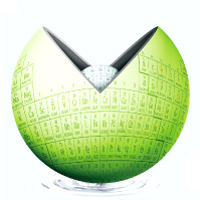
Published for geochemistry community from Geochemical Society of Japan.
Seasonal variation in stable isotopic composition of alas lake water near Yakutsk, Eastern Siberia
Geochemical Journal, Vol. 37, No. 4, P. 519-530, 2003
ABSTRACT
Detailed measurements of temporal variations in the stable isotopic composition of precipitation and lake water were conducted in the permafrost region near Yakutsk, eastern Siberia. The δ18O ranged from approximately −30 to −5‰ in precipitation and from −25 to −5‰ in lake water were observed from April to August, 2000. Temporal changes in δ18O of precipitation observed weekly at 12 sites all showed the same trend. The temporal variation of δ18O in lakes classified into two groups: isotopically steady-state lakes with less than 5‰ variation, and non-steady-state lakes with variation exceeding 10‰. In non-steady-state lakes, the water originated from snowmelt, and the δ18O of lake water gradually enriched as a result of evaporation during the summer. In steady-state lakes, the water originated predominantly from 18O-enriched lake water that had evaporated in the previous summer. The temporal volumetric and isotopic variations in alas lakes are accurately depicted by an isotope mass-balance model using Rayleigh fractionation over daily time steps. The inflow of soil water (subsurface flow) was estimated to be constant (200 m3/day) from May to August, based on the difference between observed and simulated lake volumes. Taking the isotopic mass-balance into consideration, the soil water in lower part of the active layer is inferred as a major component of inflow which has a δ18O of about −23‰.- Published : 2003-08-20
- Released on J-STAGE : -
- Received : 2002/09/27
- Accepted : 2003/04/01
- DOI : https://doi.org/10.2343/geochemj.37.519
- J-STAGE URL : https://www.jstage.jst.go.jp/article/geochemj1966/37/4/37_4_519/_article/-char/ja
- J-Online ISSN: 1880-5973
- Print ISSN : 0016-7002
- ISSN-L : 0016-7002
All Issues
- Vol.59, 2025
- Vol.58, 2024
- Vol.57, 2023
- Vol.56, 2022
- Vol.55, 2021
- Vol.54, 2020
- Vol.53, 2019
- Vol.52, 2018
- Vol.51, 2017
- Vol.50, 2016
- Vol.49, 2015
- Vol.48, 2014
- Vol.47, 2013
- Vol.46, 2012
- Vol.45, 2011
- Vol.44, 2010
- Vol.43, 2009
- Vol.42, 2008
- Vol.41, 2007
- Vol.40, 2006
- Vol.39, 2005
- Vol.38, 2004
- Vol.37, 2003
- Vol.36, 2002
- Vol.35, 2001
- Vol.34, 2000
- Vol.33, 1999
- Vol.32, 1998
- Vol.31, 1997
- Vol.30, 1996
- Vol.29, 1995
- Vol.28, 1994
- Vol.27, 1993
- Vol.26, 1992
- Vol.25, 1991
- Vol.24, 1990
- Vol.23, 1989
- Vol.22, 1988
- Vol.21, 1987
- Vol.20, 1986
- Vol.19, 1985-1986
- Vol.18, 1984
- Vol.17, 1983
- Vol.16, 1982
- Vol.15, 1981
- Vol.14, 1980
- Vol.13, 1979
- Vol.12, 1978
- Vol.11, 1977
- Vol.10, 1976
- Vol.9, 1975
- Vol.8, 1974
- Vol.7, 1973
- Vol.6, 1972-1973
- Vol.5, 1971
- Vol.4, 1970-1971
- Vol.3, 1969-1970
- Vol.2, 1968
- Vol.1, 1966-1967
Current Issue:
Stats:
Impact Factor: 1.6 (2024)
Submission to final decision: 9.6 weeks (2022)




